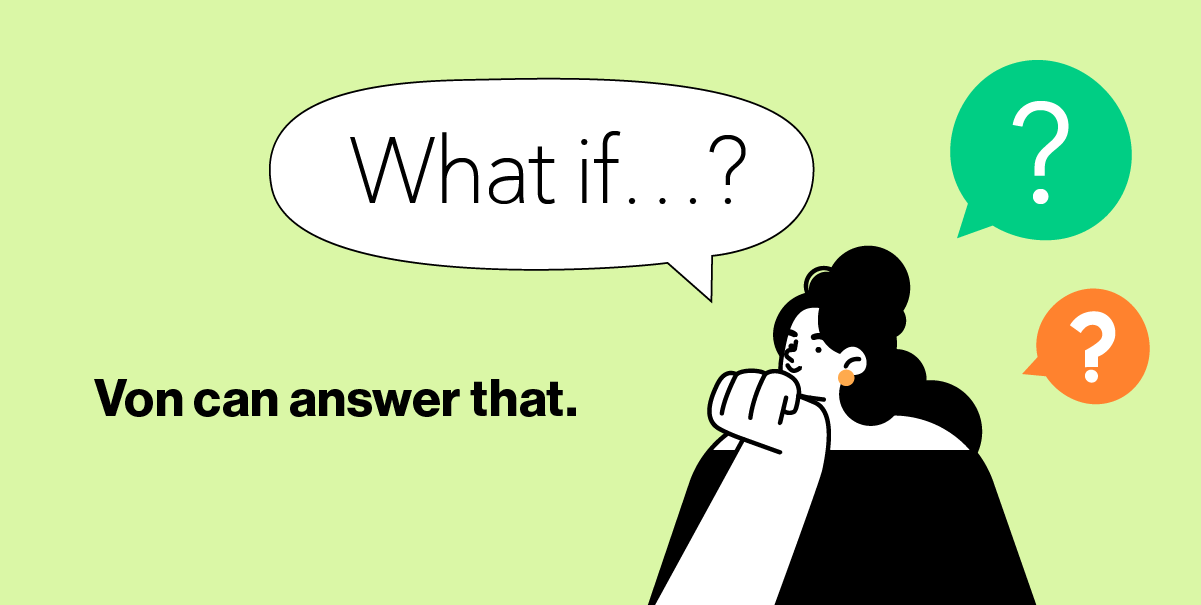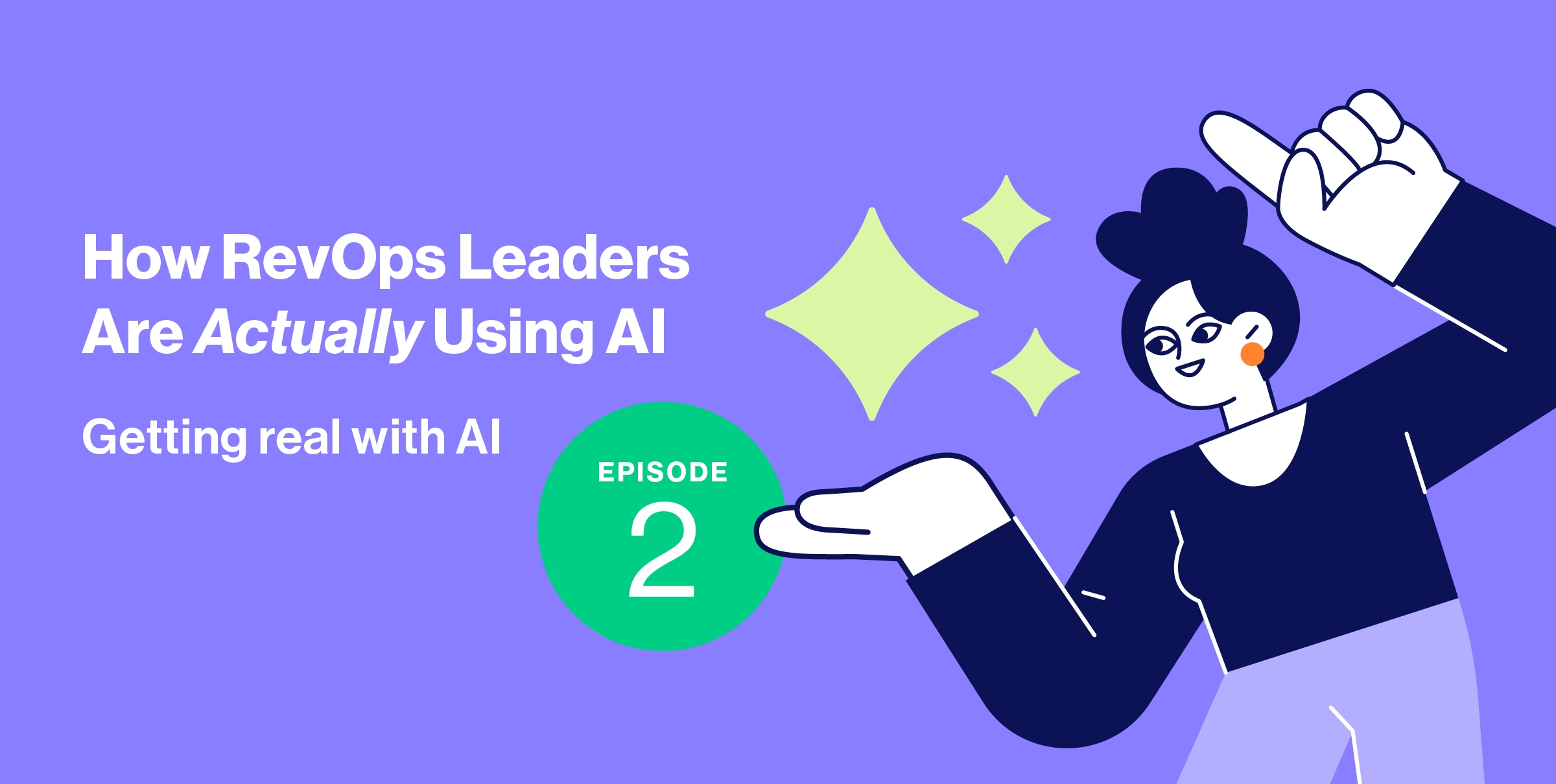In our very first episode of How Rattle Rattles, we discussed the somewhat unsettling term of existential dogfooding — when a company uses its own product daily for its very survival.
We spoke with Rattle’s lead SDR, Justin, about the shift he felt when he started here. Rattling caused lead to something of an epiphany:
RevOps isn’t the enemy! Salesforce is!
We’re kidding.
The real takeaway we got from Justin: A strong ops function for a revenue team isn’t for the benefit of Ops folks themselves, but for the revenue team as a whole! In a way, here at Rattle, RevOps has become “Rep Ops.” Philosophical buy-in at the SDR level has lead to many hands making light work — and when much of the tactical stuff is set aside, creativity and camaraderie follow.
And even less rep-based hatred of SFDC, too!
This week though, provided a 180-degree turnabout on the notion that Rattle always lends itself to rep buy-in to the tenets of RevOps. Sometimes — and granted, this is probably pretty rare — the full buy-in is already there.
Wait what? Really?
Yeah, really.
As Rattle AE Ranjay explains: you can have all the alignment with RevOps’ value in the world, but it doesn’t matter if you don’t have the time — the actual, cold-hard time — to do what you’ve gotta do.
The real difference wasn't freeing up Ranjay’s mind about all that’s possible (which four years as a closer in tech has already seemed to teach him) but rather, freeing up his time.
What was your Rattle awakening, Ranjay?
“I don't know if I’ve had any sort of awakening,” Ranjay laughed, after I first told him about Justin’s experience (and admittedly was fishing for a similar story). “I'm a pretty data-focused person. I use data a lot and I like to think I've always understood why RevOps is important, why they need the data, why they need it at the right time.”
So, how do you use Rattle to sell Rattle?
“I think there's two pieces. One is from an efficiency perspective. From Rattle, I get everything coming to me in Slack. Let’s say I've just had a call. We have a Meeting DM set up where I can log the call right after. All the notes are fresh in my mind. I log them inside of Slack and then I update that opportunity as well as any relevant notes from the conversation immediately. Whereas if I were to go update those notes later — what I've done at previous orgs is I go into Salesforce on Friday and I try to context-switch to what happened during that deal or look at my notes — there's a lot of things I’ll miss. I do it right after the call or if back-to-back calls, as soon as I have a gap in my schedule, I'll go make sure I have that updated. All that gets into Salesforce.”

And the second?
“Visibility. From that standpoint, I've actually been able to improve as a closer. I've actually been able to collaborate with my CEO on deals, with my team on deals. Our Deal Rooms feature makes that all possible. So I know as soon as I have a call or as soon as I receive an email or I need to help the rest of the team can jump in. And they do come in. We kind of swarm a deal. We collaborate in real-time versus finding out when it's often too late.”
So teamwork does indeed make the dream work.
“Yeah and I think sales people often live in silos. They're focused on their number, their quota, and nothing else matters. There have been a lot of teams who I’ve worked with, I've heard from friends that aren't collaborative. They don't really help each other. But I think using Rattle has given us a real culture of transparency and a culture of being willing to help. Our call notes are posted in a channel where I can jump in and see that, hey, our CSM had a call with an account that I signed two months ago and this happened. Oh let me jump in and add some context. Or oh, my colleague, another AE is working a deal. I ran into an issue and I had that same issue last week. Let me comment there and help. And then maybe someone else comes in and adds onto it. So it's created this culture of collaboration through more visibility and more transparency. And I think that's helped us all win and lose as a team.”
What do you think Rattle’s secret sauce that does all of this?
“Having such an easy process to get data in Salesforce is first, to me. And next in terms of secret sauce is collaboration in deal rooms. I obviously have seen a lot of the pains and issues that happen with Salesforce, it being software that is very time-consuming. I've never met a rep that likes using Salesforce. In fact, I’ve found a lot of my time in the past was wasted inside of Salesforce when I would rather be selling and speaking to folks. Taking that off my plate – avoiding Salesforce — is huge. And then being able to really get together on deals within Slack has been paramount.”
Not avoiding Salesforce means…
“It means I have more data, stronger data, stronger MEDDIC notes. It actually helps me get more context on deals. And then I see the impact: win rates are improved. Deal velocity is improved. And most of this because I can prioritize the stuff I want to do.”
Sounds like you actually did have a sort of epiphany, though?
“If I had any epiphany it would’ve been about my notions of data entry. My feelings about data entry and Salesforce adoption and hygiene… I will agree that those have completely changed. Data entry is not something I dread now. it's something that is just seamless and just comes as part of the job. It’s really streamlined.”
Any particular feature you like, something that really heightens that streamlining as an experienced AE?
“Hands down: Deal rooms. I obviously love the collaborative piece. I've had management experience in the past and I really wish that I had Deal Rooms at those companies. It can help get the full picture from a management perspective. I don't have to be on every single call… But then from a rep perspective, it helps me collaborate with my leadership team, too.”

And this might seem obvious, but how does collaboration make for a more effective workday?
“A lot of deals can end up getting pretty complicated. From a technical perspective, from a deal management perspective. Deal Rooms helps collaborate with my technical team quickly. If there's product requests or there's something that's nuanced in a trial, this helps me collaborate with the product team with those technical folks. And that in turn again, helps me close that deal faster, too. Versus, what? I would normally have to go get an SE involved, let me write them via Slack. They say, Hey, go fill out a ticket inside of Salesforce. I go fill out the ticket and then it's three, four days until I hear back from them. But I need them on a call tomorrow. Deal Rooms is my favorite for that reason.”
And finally: Any quick wins you like to tout, especially as we roll out Rattles internally here?
“I think when we've implemented new processes, the quickest wins are definitely data capture. Right away. That's the biggest thing. We quote 50 to 70 percent improvement in the first two weeks. And we see it. And even short-term with free trials, we'll set up a trial and a customer will say, ‘Hey, I've already had positive feedback from my team, or I'm already getting better data instantly rather than having to chase reps down for it!’ And quick wins help us say, ‘Hey look, there’s more that can be done’.”
So as an AE, to close us out here… would you say Rattle changes culture, similar to what Justin said?
“Well I can't say, 'Okay, if you implement Rattle today, your culture’s gonna change tomorrow.' There's so many other factors as well. Hiring practices, for instance. But [Rattle] makes it far, far easier to enable that type of culture. It definitely gives you time back on your day. It definitely takes some of the manual pains out. And that improves the relationship and reducing the friction between Sales and RevOps. Sales gets an easy-to-use platform in a tool they already love — Slack — and RevOps gets the data they need at the right time. And in a lot of ways, that’s really the most important first step. Realizing: Hey, I have way more time to work on strategic deals, my day-to-day improves and with that, I can end up closing more too.”





